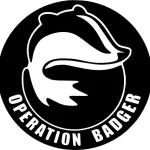Police in North Yorkshire have warned poachers that their illegal behaviour will not be tolerated as autumn approaches.

The seasonal trend of illegal hare coursing matches the farming calendar, meaning there is typically an increase in poaching offences in September and October, after crops have been harvested, and fields are left empty and open.
North Yorkshire Police have joined Operation Galileo, a major clampdown on poaching offences. Galileo is a national campaign, pioneered by Lincolnshire Police, and bringing together forces particularly affected by this offending. Forces will work together to ensure the issue is tackled in a coordinated way, by sharing information and working across force boundaries.
As part of the operation in North Yorkshire, vehicles previously linked to poaching will be identified and targeted. Suspects will be stopped and dealt with robustly, and victims will be visited to obtain witness statements. Police intelligence and the Automatic Number Plate Recognition (ANPR) network will be used to ensure an effective response to suspicious vehicles and activity.
Days of action will be planned using officers and specialist resources from the Rural Taskforce, Proactive Policing teams, Neighbourhood Policing officers and Mobile Rural Watch volunteers. During these days, police will deploy to areas of high activity, to prevent offending and investigate offences.
As part of Operation Galileo, officers will also work closely with other police forces affected by illegal poaching. The forces will share information and intelligence (as offenders often operate across force boundaries), mount joint prosecutions where possible, and ensure a consistent approach in dealing with the issue.
Poaching refers to the illegal taking, killing, injuring or pursuit of game, deer or fish. North Yorkshire has large, isolated areas of farmland, forestry and lakes, which tend to be vulnerable to poaching activity.
In addition to being a wildlife crime, illegal poaching on farmland can cause significant damage to young crops, resulting in large financial losses for farmers.
Furthermore, identified offenders often have previous involvement in other forms of cross-border crime, or are members of organised crime groups. Many offenders travel long distances to North Yorkshire to carry out poaching offences, and are frequently from other force areas.
Source: North Yorkshire Police
To read the full article, click here.




